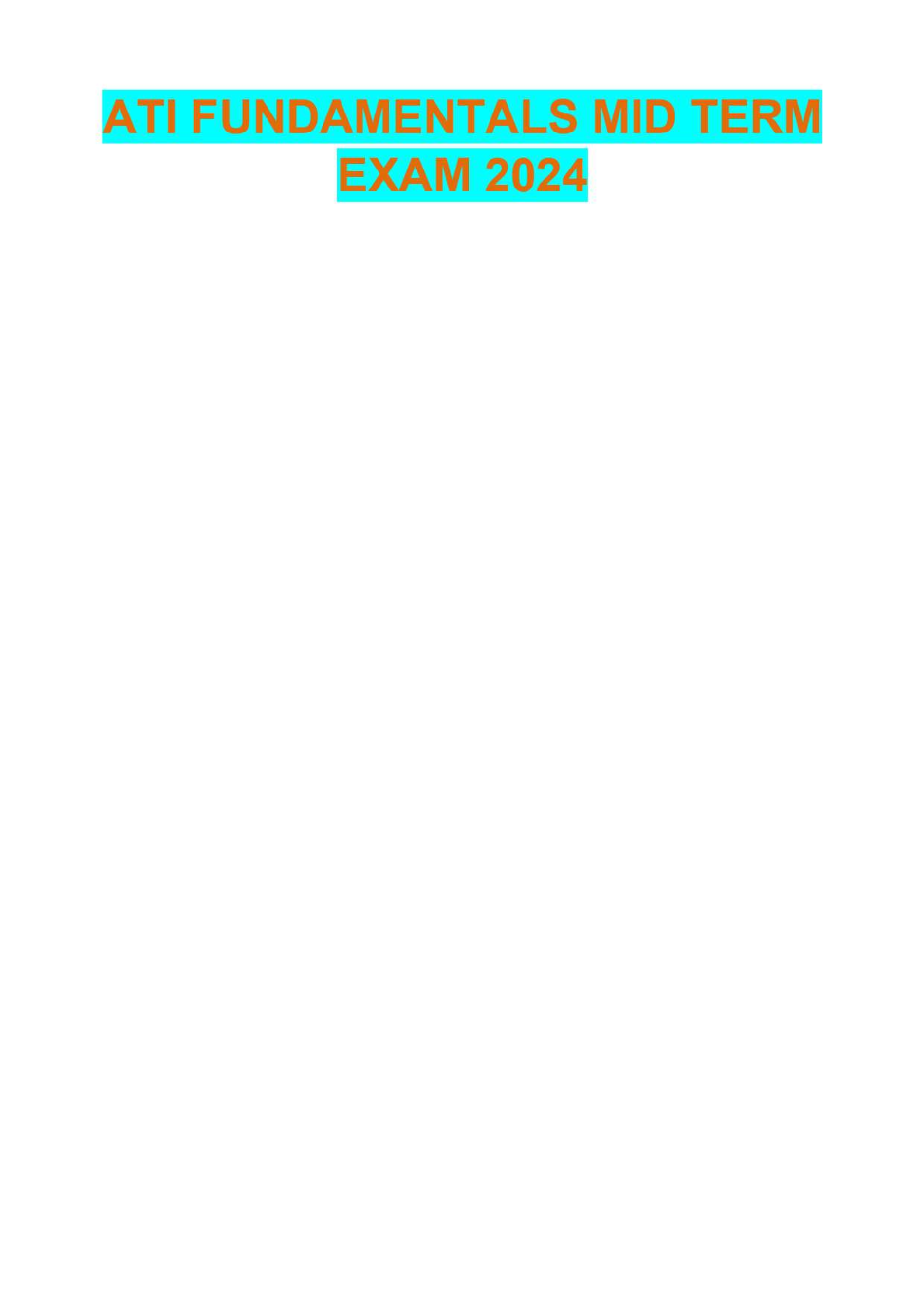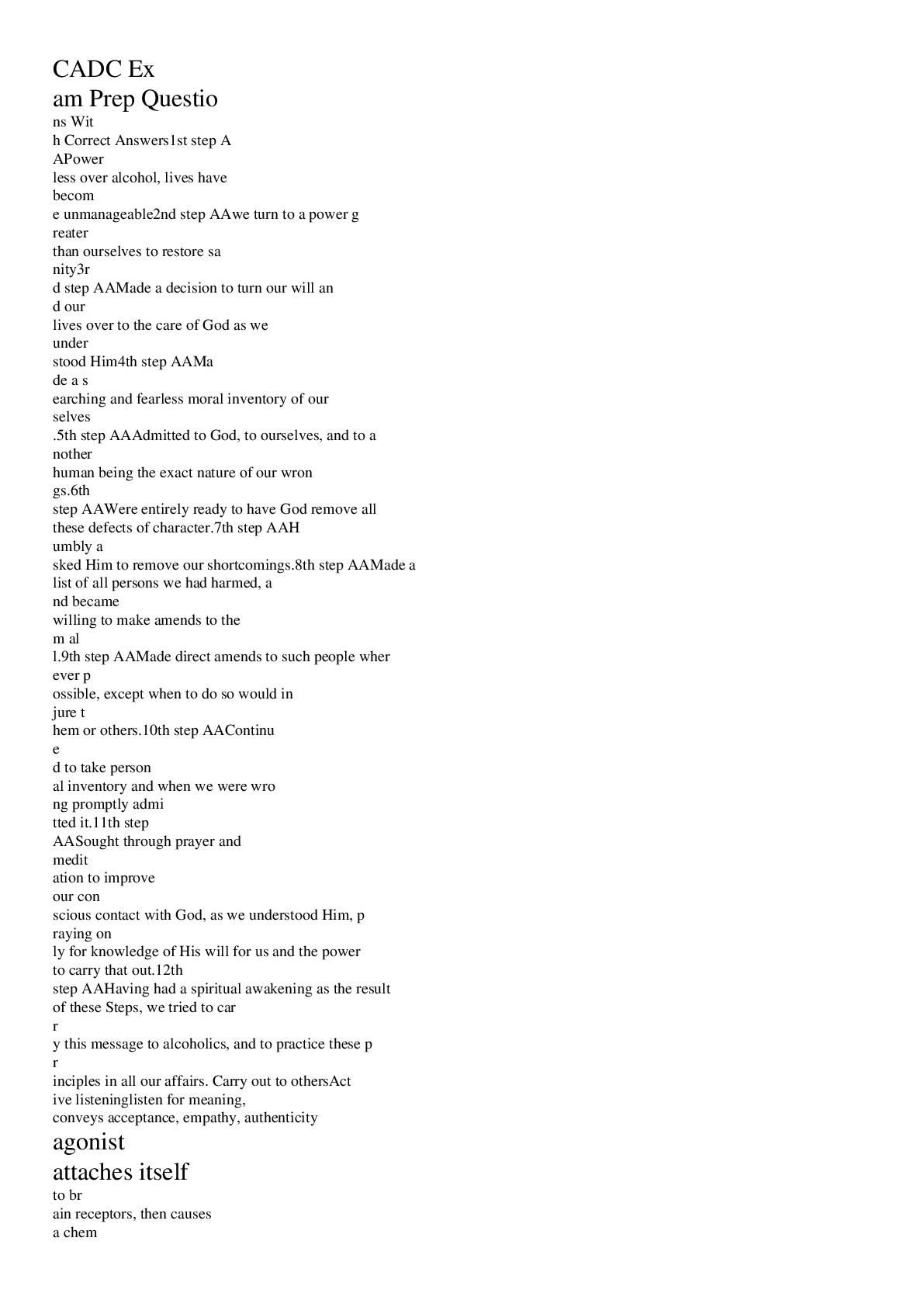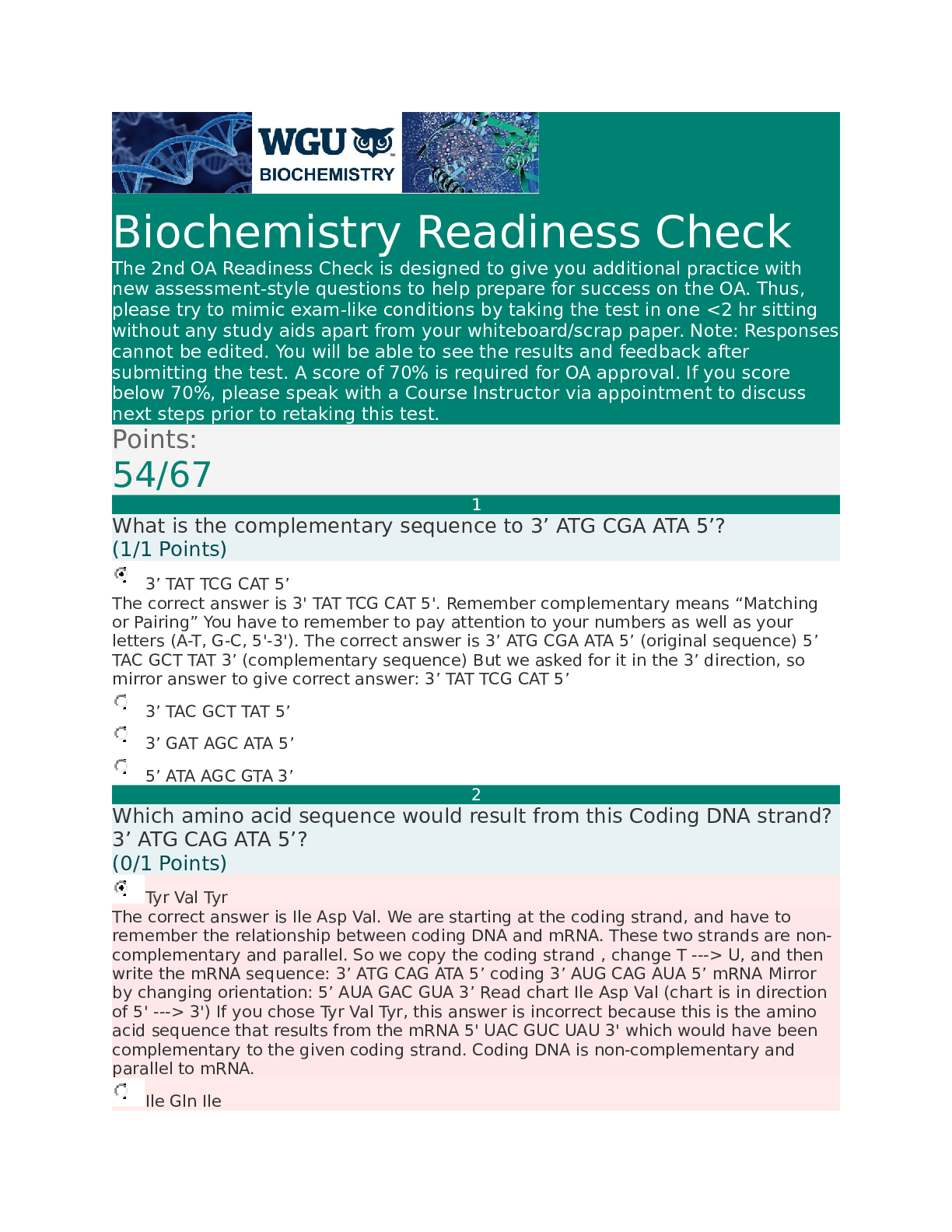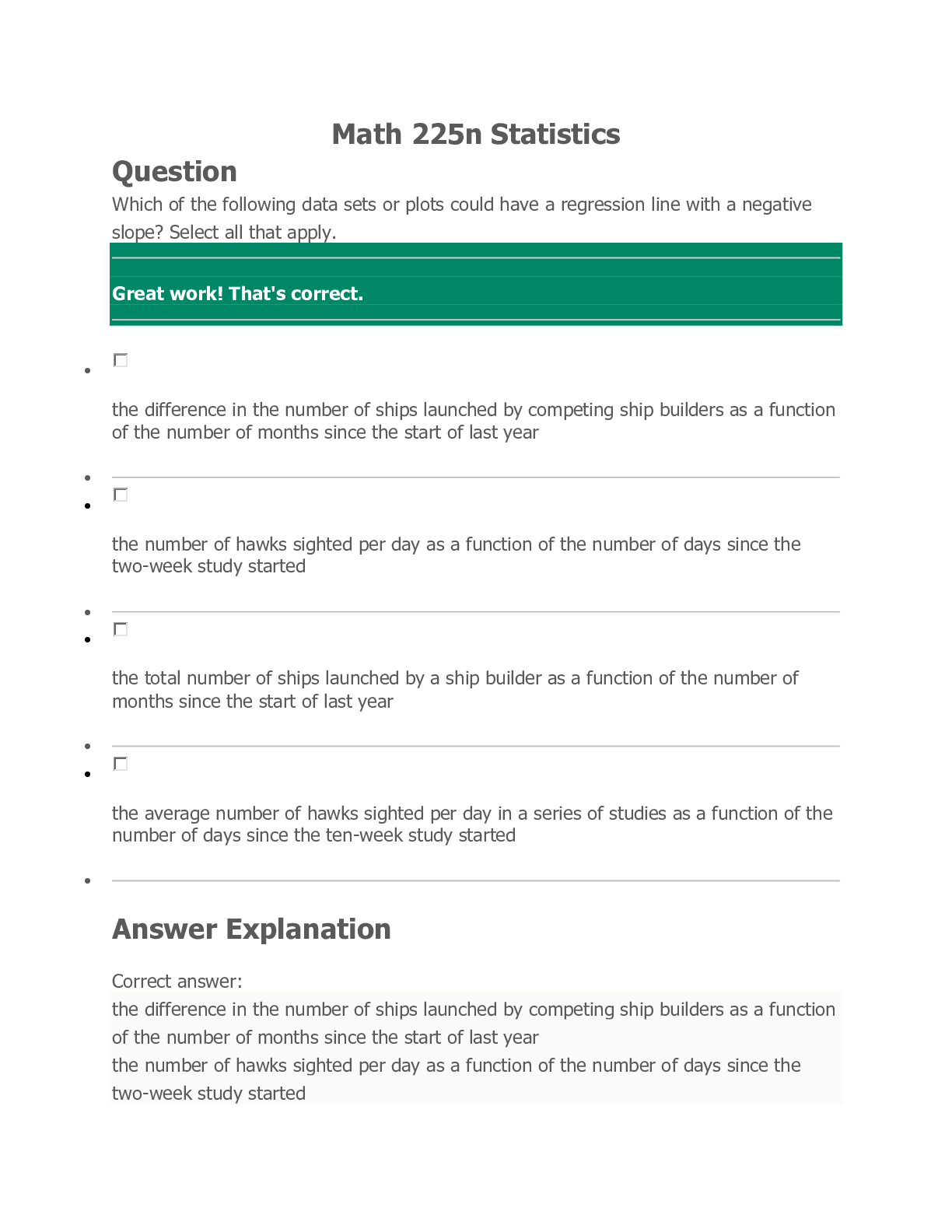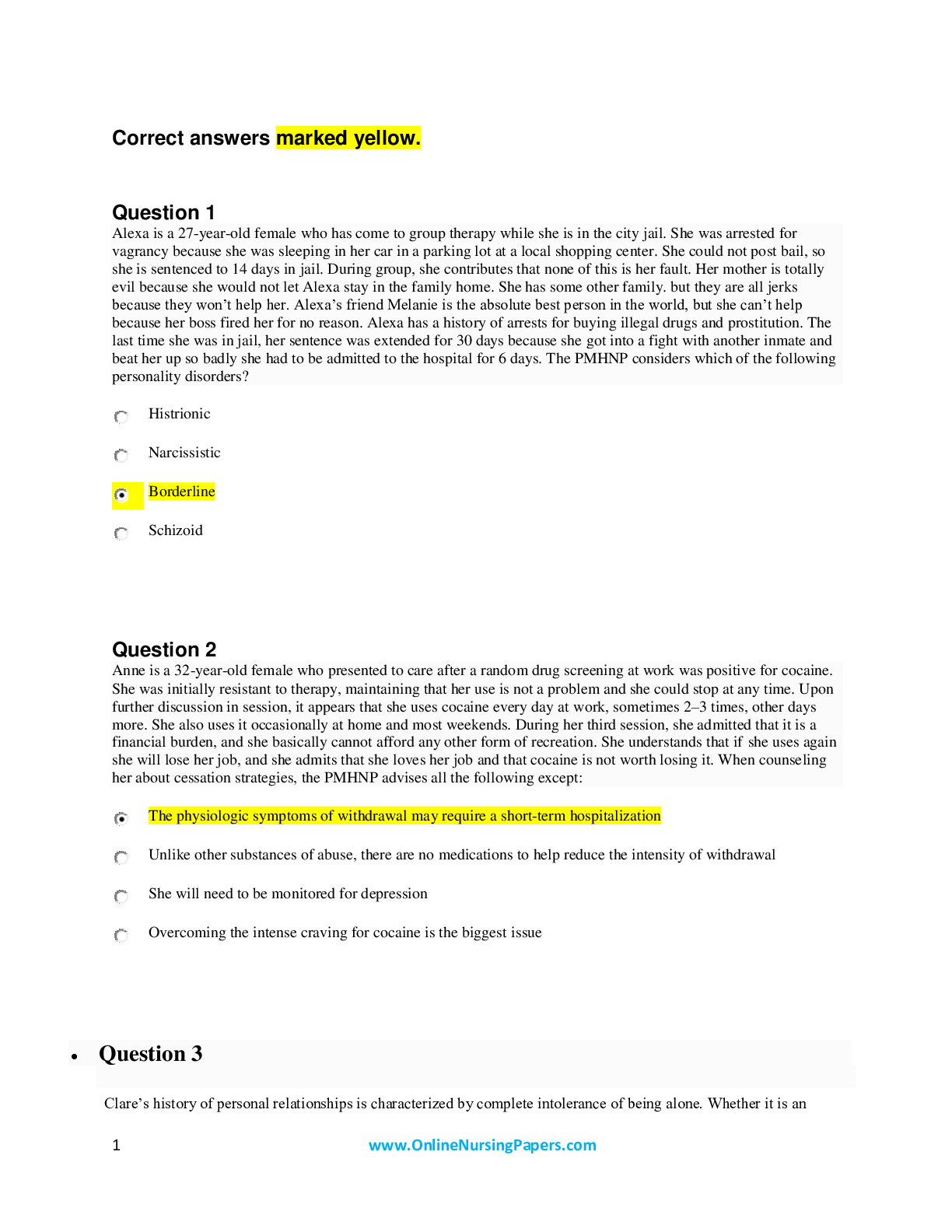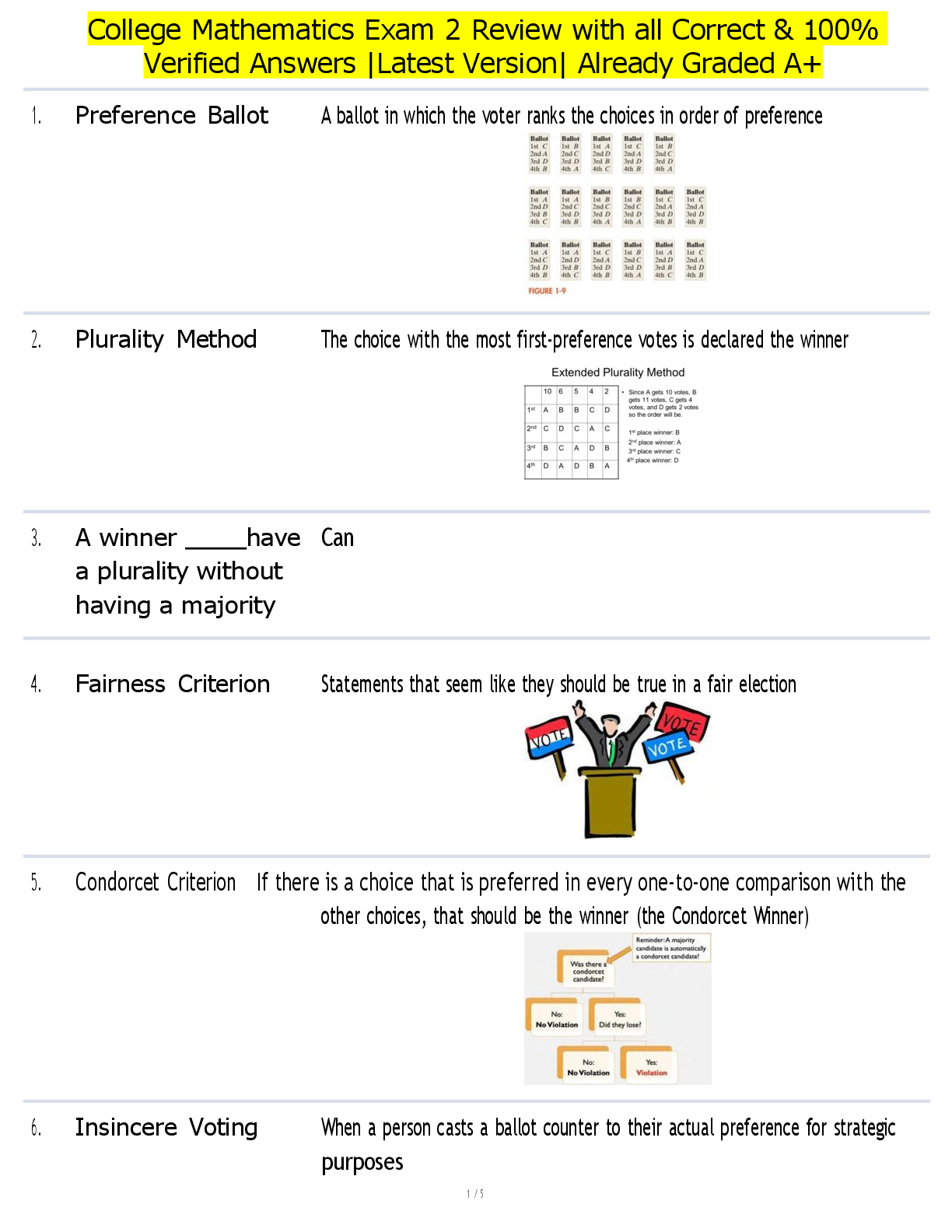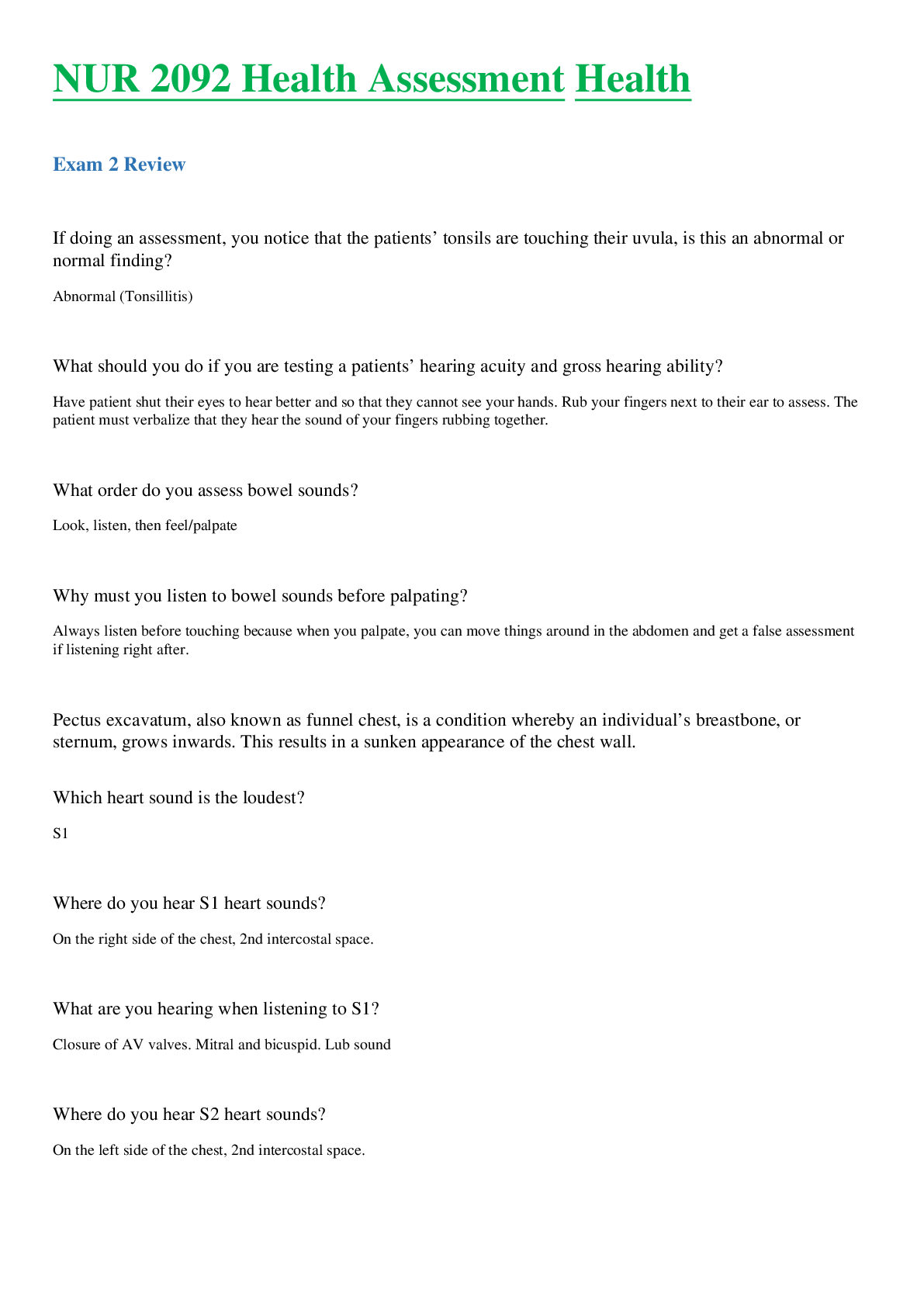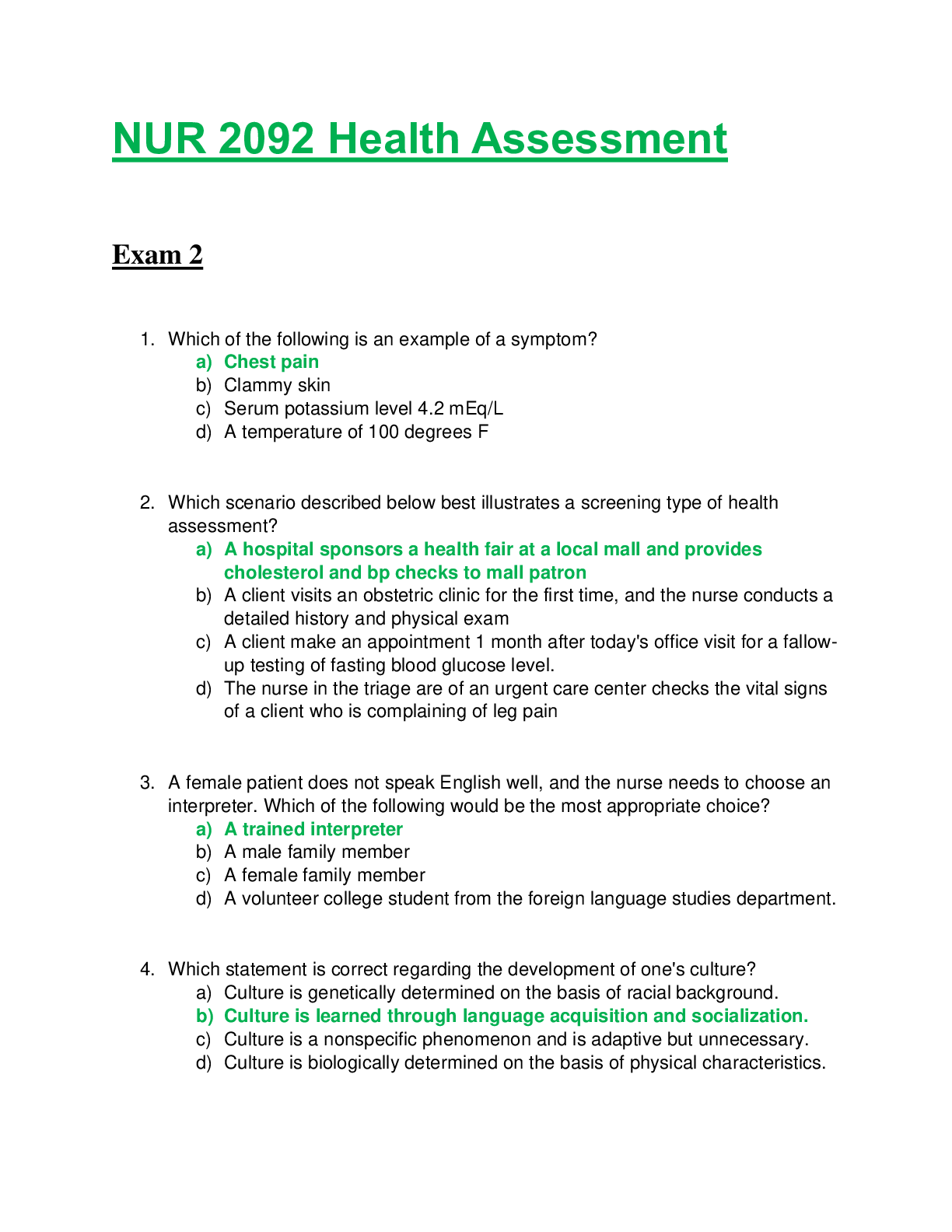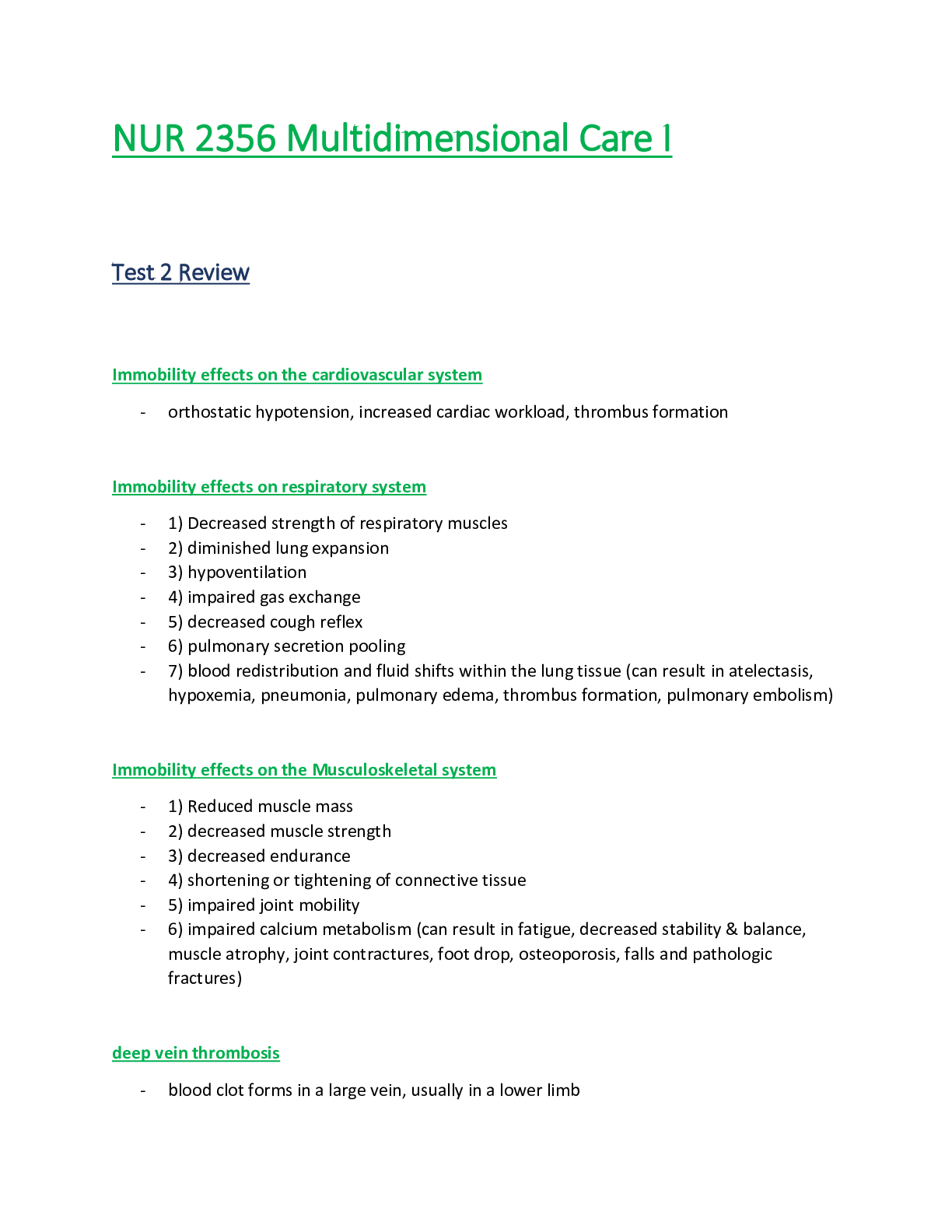*NURSING > EXAM REVIEW > Week 9 knowledge check NSG 6430 for 2022/2023 COMPLETED A South University (All)
Week 9 knowledge check NSG 6430 for 2022/2023 COMPLETED A South University
Document Content and Description Below
Week 9 knowledge check NSG 6430 South University Red highlight is correct answer 100% correct Question 1. The nurse practitioner is counseling a patient about midlife health issues in women and inf ... orms the patient that the number one cause of mortality in the United States is Primary osteoporosis. Cardiovascular disease. overweight and obesity. cancer (of the lung and bronchus, breast, and colon). Question 2 The nurse practitioner understands that an age-related anatomic change that can lead to urinary incontinence is: The shortening of the urethra The reduction in bladder capacity The increase in habitual preventative emptying of the bladder The decline in number of urethral striated muscle fibers The urethral striated muscle fiber is one of the anatomic structures that prevent urinary incontinence at the onset of abdominal pressure. The two anatomic structures that prevent urinary incontinence are; supportive system and sphincteric system. The urethral striated muscle fiber contributes to the closure of the vesical neck in the urethra to prevent incontinence. The urethral striated muscle fiber decreases as one age. This will have the effect of reducing the of the sphincter muscles to stand the abdominal pressure and prevent urinary incontinence. The shortening of the urethra only occurs in women and this means it does not happen for men. The change in the bladder capacity is a physiological change and not an anatomic change. For this reason, the decline in the number of urethral striated muscle fibers is the cause of urinary incontinence among the aged 3. Pelvic muscle contraction that is strategically timed to increase intraurethral pressure just before and after the event that causes urinary incontinence? Kegel contraction Detrusor maneuver Reverse bladder contraction Knack maneuver Question 4 The nurse practitioner is evaluating a patient for pyelonephritis and understands it is distinguished from cystitis in that: The infection has descended to the bladder. The infection has ascended to the kidneys. The infection is caused by E. coli bacteria. The infection occurs only in pregnant women. The nurse practitioner understands that pyelonephritis is distinguished from cystitis based on the ascendance to the kidney. Cystitis only affects the bladder while the pyelonephritis affects the kidneys. Both conditions are caused by E.coli bacteria Question 5 The nurse practitioner is reviewing antibiotic treatment guidelines for uncomplicated lower UTIs and the latest recommendations include which of the following? Seven-day regimens are now recommended. Three times a day of oral antibiotics are now recommended. Three-day regimens are now recommended. A single dose is now recommended. [Show More]
Last updated: 3 years ago
Preview 1 out of 2 pages
Buy this document to get the full access instantly
Instant Download Access after purchase
Buy NowInstant download
We Accept:

Reviews( 0 )
$3.00
Can't find what you want? Try our AI powered Search
Document information
Connected school, study & course
About the document
Uploaded On
Aug 23, 2020
Number of pages
2
Written in
All
Additional information
This document has been written for:
Uploaded
Aug 23, 2020
Downloads
0
Views
188


